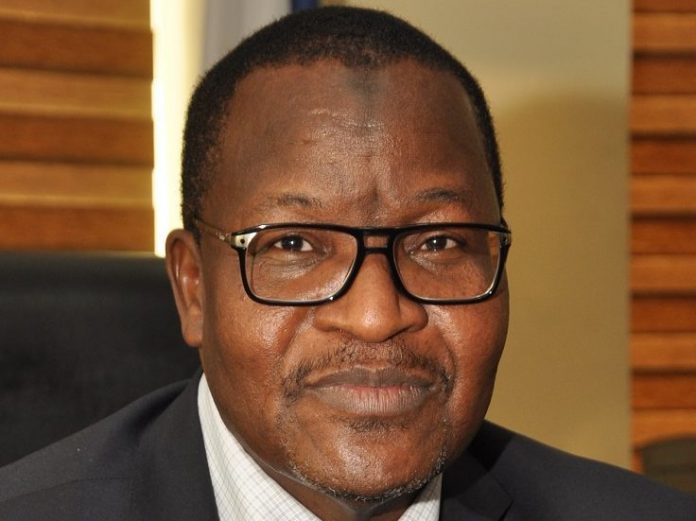The Executive Vice Chairman, Nigerian Communications Commission (NCC), Prof. Umar Danbatta, has described the public-private partnerships (PPP) model as strategic to current efforts to position the nation’s economy on the path of sustainable growth.
The industry regulator made this remark in his keynote address at the 2021 Conference and Exhibition on Information Communication Technology & Telecommunications (ICTEL) organised by the Lagos Chamber Of Commerce and Industry (LCCI).
Danbatta said the telecom sector remained the most important sphere the PPP model should be adopted in view of the sector’s multiplier effects on other sectors of the economy.
Citing a 2012 World Bank report, which documented how PPP projects had been used to provide broadband access nationally, regionally, or in rural areas to improve broadband access to un-served and underserved locations to support his views, the EVC noted that the Breton Woods institution equally revealed in its 2021 report that the PPP scheme was also helping in key areas of supporting the development of innovative policies, actions, standards, and technologies in order to connect the unconnected in any nation, create jobs, enable efficient natural resource utilisation, and electronic waste management.
According to him, the NCC is noted for identifying strategic collaboration and partnership as a central principle of its stakeholders’ relationship management and regulatory activities.
He expatiated: “Our daily regulatory processes are marked by consultations with a wide spectrum of stakeholders as well as strategic partnering and collaboration with both private sector players and other sister public sector organizations.
“In a concrete expression of belief in the centrality of PPP principles, the NCC, in November 2020, created a ‘PPP Unit’ as a division under its Special Duties Department. The Unit is overseeing the implementation of the NCC’s revenue assurance solutions (RAS) as well as the Device Management System (DMS) project.
“The two projects are being implemented in collaboration with private sector players. While the RAS is intended to address the revenue leakages accruable to the government, through the NCC; the DMS is intended to address the issue of type approval of telecom equipment and devices to ensure originality and standardisation because of the implication of substandard devices for health and quality of service.
“The DMS is also instituted to tackle the problem of SIM boxing and call masking, which not only constitutes threat to national security but also a mark of anti-competitive practice in the telecoms sector and a basis for loss of revenue in tax remittances to the government”, the EVC added.
Danbatta further explained that the Commission had continued to enhance existing infrastructure through the licensing of a category of private sector players known as Infrastructure Companies (InfraCo), who are to deploy fibre optic cables on a wholesale basis across the country with broadband Point of Access (PoA) in each of the 774 Local Government Areas of the country.
He said that the InfraCo scheme was running on a PPP arrangement, where the government provides a counterpart fund as a subsidy to stimulate faster, more robust, and resilient broadband infrastructure rollout across the country.
The industry chief, however, noted that despite the various PPP interventions being undertaken by the government and similar initiatives at the Commission, a number of challenges persist in the telecom ecosystem.
Danbatta listed some of these as including multiple taxation and regulation, Right of Way (RoW) issue, vandalism, poor electricity supply, and lately worsening insecurity. All of these factors affect both the tempo and quality of infrastructure rollout by the private sector licensees, who are the main engine of growth in the telecom sector. He said these challenges also affect the quality of telecom services and by extension the Quality of Experience (QoE) of telecom consumers.
While urging stakeholders to come up with PPP ideas through which the challenges can be addressed, the EVC maintained that the Commission would continuously engage relevant public and private sectors’ stakeholders in the country and those outside the country to ensure that appropriate infrastructure befitting a modern digital economic system is available in the country to demonstrate government’s commitment to full-scale digital transformation of services in the country.






